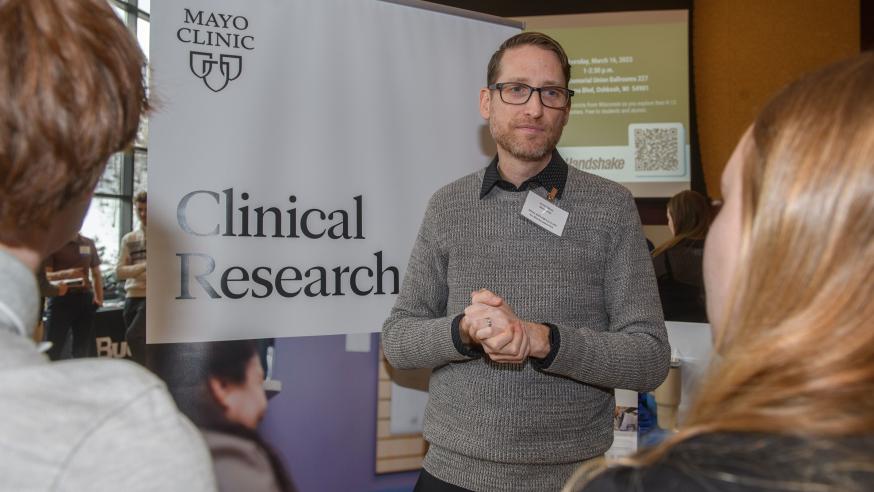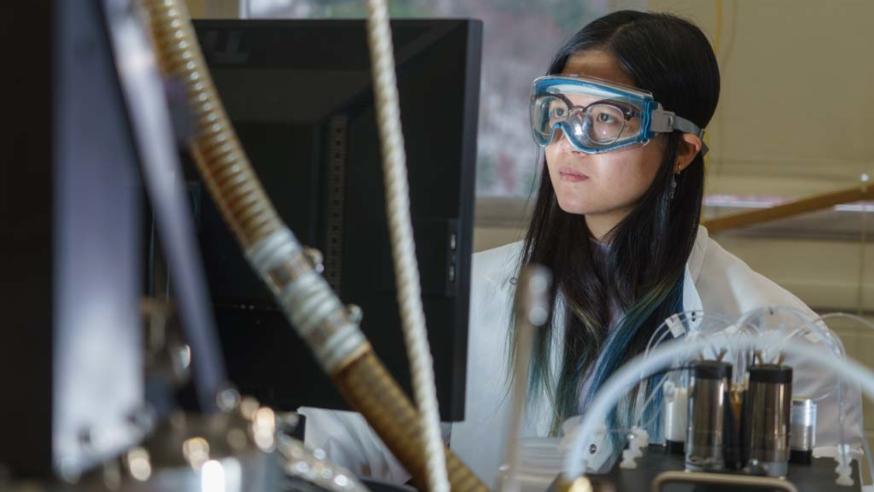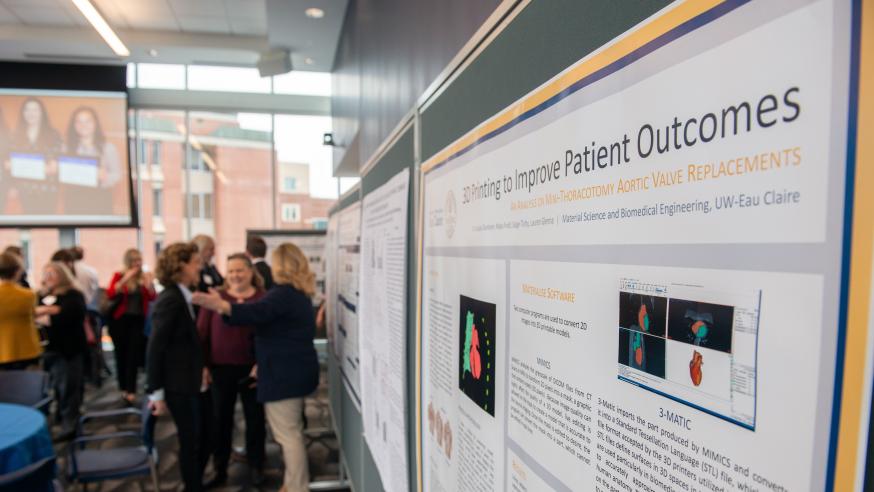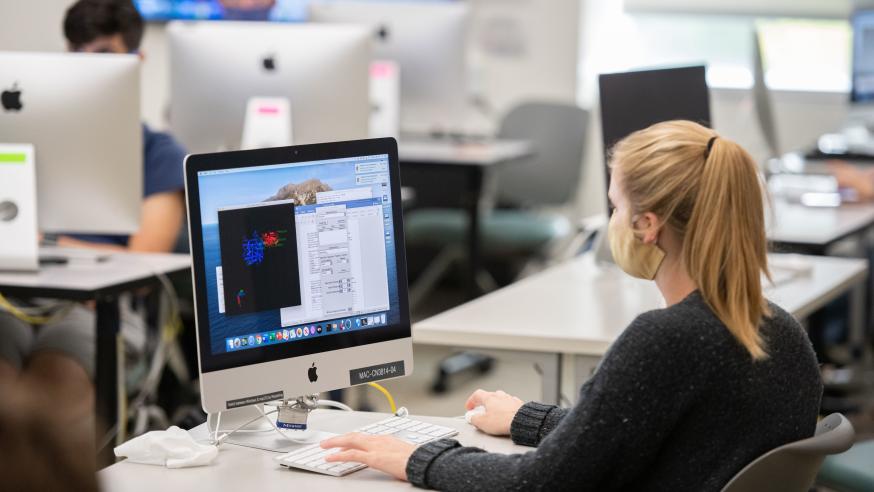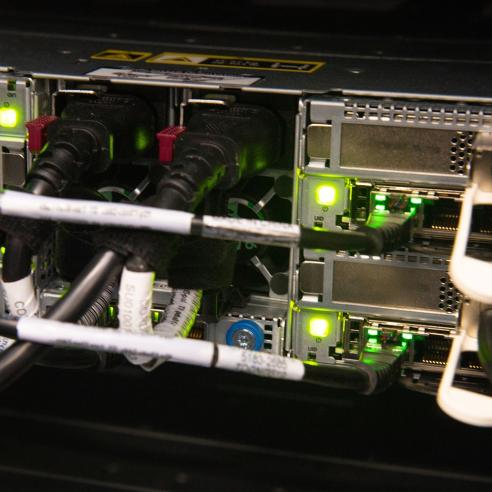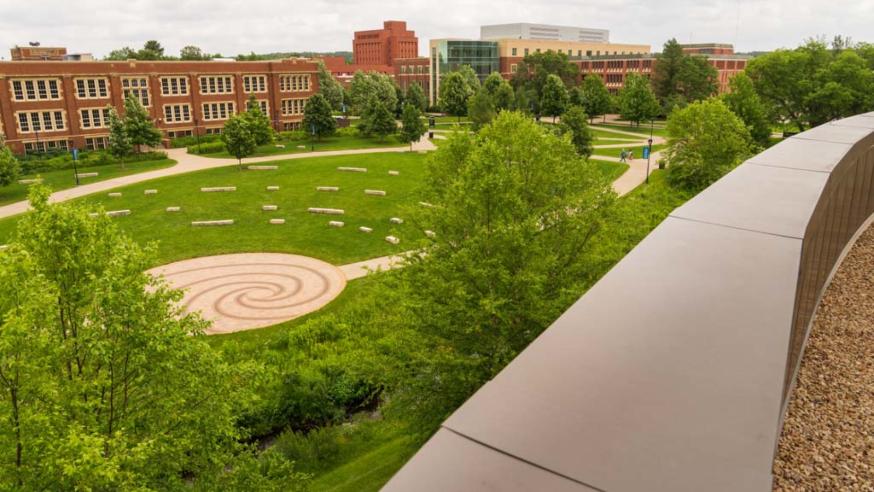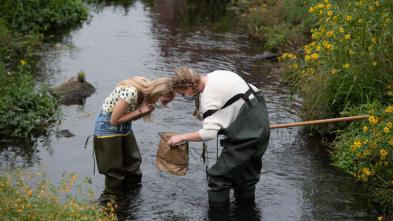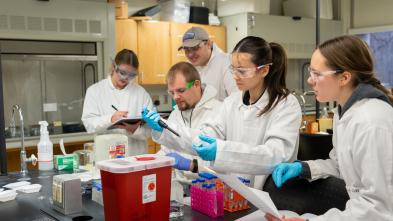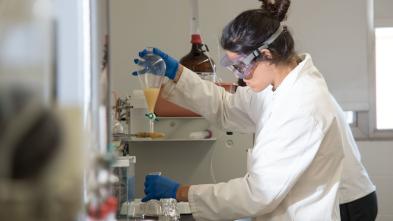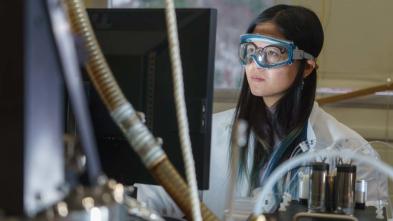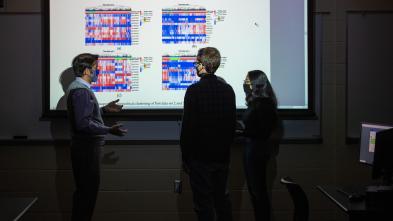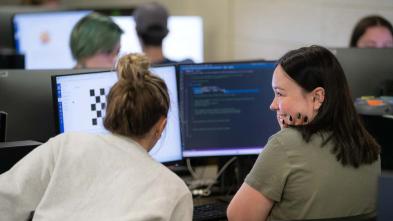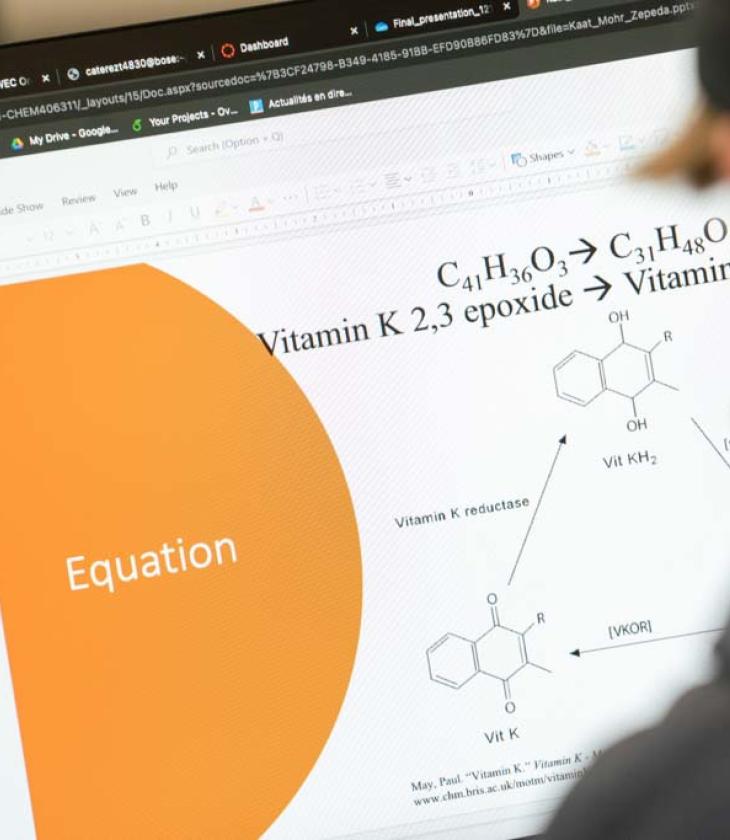

Bioinformatics
Learn the science of storing, extracting, organizing, analyzing, interpreting, and using biological data with a bachelor's degree in bioinformatics from UWEC.
Join a Growing Field
One of only a few programs like it both regionally and nationwide, the bioinformatics program will help you develop your programming and statistical skills while enhancing your knowledge in the life sciences.
Coursework throughout the program will introduce you to the software used to extract information from large databases and teach you how to use that information in computer modeling and data analysis. Students also will gain critical skills in problem-solving, which will allow them to develop new algorithms and methods of data analysis, as well as learn how to explain and apply fundamental methods in probability and statistics to the analysis of biological datasets.
UW-Eau Claire’s bioinformatics majors will graduate with the programming and statistical skills required to work as data scientists or data analysts. They also will be prepared to pursue graduate studies in bioinformatics, data science or the life sciences. The study of bioinformatics is also an excellent choice for future biologists who aspire to be involved in research and are interested in areas such as molecular biology, genetics and evolutionary biology. Computer scientists with an interest in information technologies and developing and maintaining software used in molecular biology, genetics and evolutionary biology may also find bioinformatics an exciting program. Other students who may find this program helpful to their career goals are future mathematicians, statisticians and data scientists with an interest in using statistical techniques to analyze datasets encountered in molecular biology, genetics and evolutionary biology.
Program Details
Blugold Stories
JustThe Facts
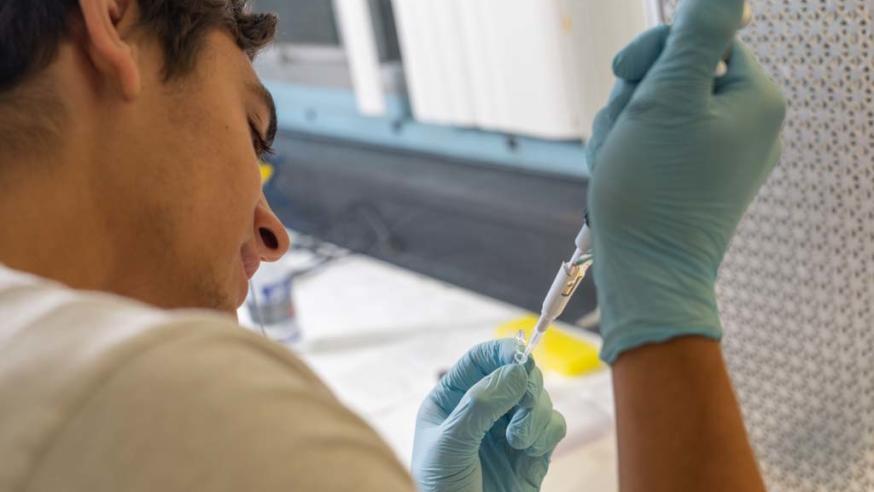
Where can the bioinformatics program lead me after graduation?
The field of bioinformatics grew out of the need to organize and analyze the increasingly large amounts of biological data being generated. Since bioinformatics analyses are increasingly necessary to address many biological questions, the demand for bioinformaticians is rapidly growing. More than ever, our world requires experts who are not only capable of processing data to gain information but to do so in a way that allows for a faster and more accurate response.
Bioinformatics graduates will find themselves a necessary component of many teams addressing questions in biology, including the elucidation of basic molecular/genetic mechanisms, the discovery of targets for drug discovery, the study of structural and functional relationships, and molecular evolution. Bioinformaticians with skills in computer science or mathematics also may help develop new algorithms and new approaches to data analysis.
Example Careers
- Bioinformatician
- Biologist
- Data scientist
- Research scientist
- Data analyst
- Computer scientist
- Computer research scientist
- Information scientist
- Software developer
- Mathematician
Housed in the mathematics department, the bioinformatics bachelor's degree will require students to complete the university’s liberal education core classes as well as coursework in biology, chemistry, computer science, and mathematics.
Curriculum throughout the program will empower you to use cutting-edge computational tools to solve problems and answer questions using large amounts of biological data. Students graduate with the knowledge, skills, and experience necessary for current jobs in both industry and academia.
Here are a few courses in Bioinformatics at UW-Eau Claire.
BIOL 149
The Big Picture in Bioinformatics
Explores how a liberal education relates to bioinformatics, the impacts of the field on society, and ethical expectations of the discipline. Provides an overview of bioinformatics looking at the differences between being a user and a developer along with additional technical topics.
BIOL 223
Foundations of Biological Inquiry
Introduction to inquiry methods in biology focusing on scientific methods including experimental design, data collection and analysis, and critical thinking.
BIOL 343
Applied Bioinformatics I
Addresses tools and applications used in the analysis of biological sequence data. Topics include navigation of biological sequence databases, sequence-similarity searches, domain and motif prediction, sequence alignment, phylogenetic analyses, molecular evolution, and analysis of differential gene expression. Covers the biological and mathematical theory underlying these analyses, and provides practical, hands-on experience with computational tools implementing them.
Get More Info
Sign up to receive additional information about our campus.
Meet the Faculty



